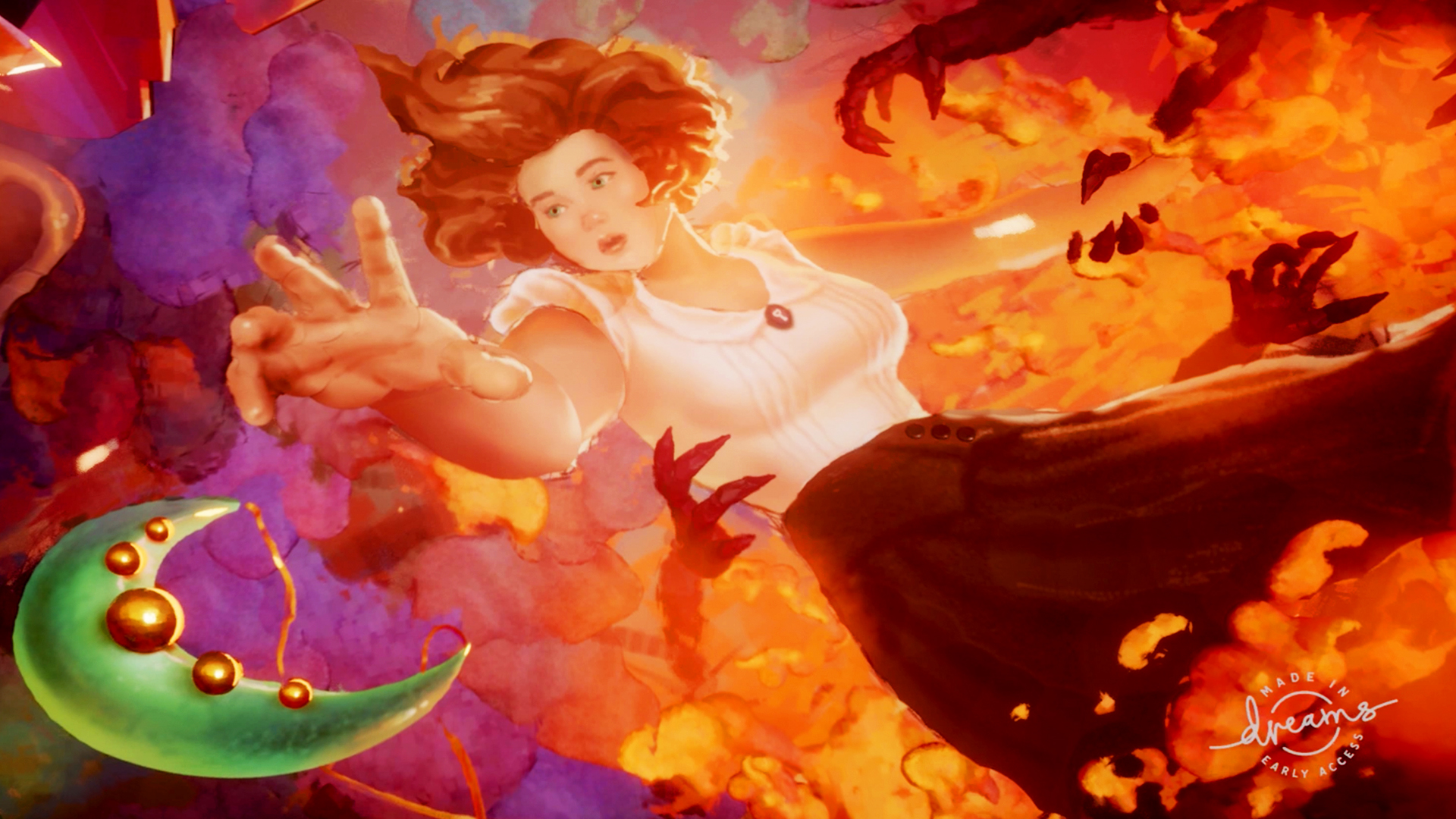"I thought it'd be a forest of penises straight away": Media Molecule talks Dreams Creator Early Access
The studio's most ambitious game yet is both a creative toolkit and an art gallery
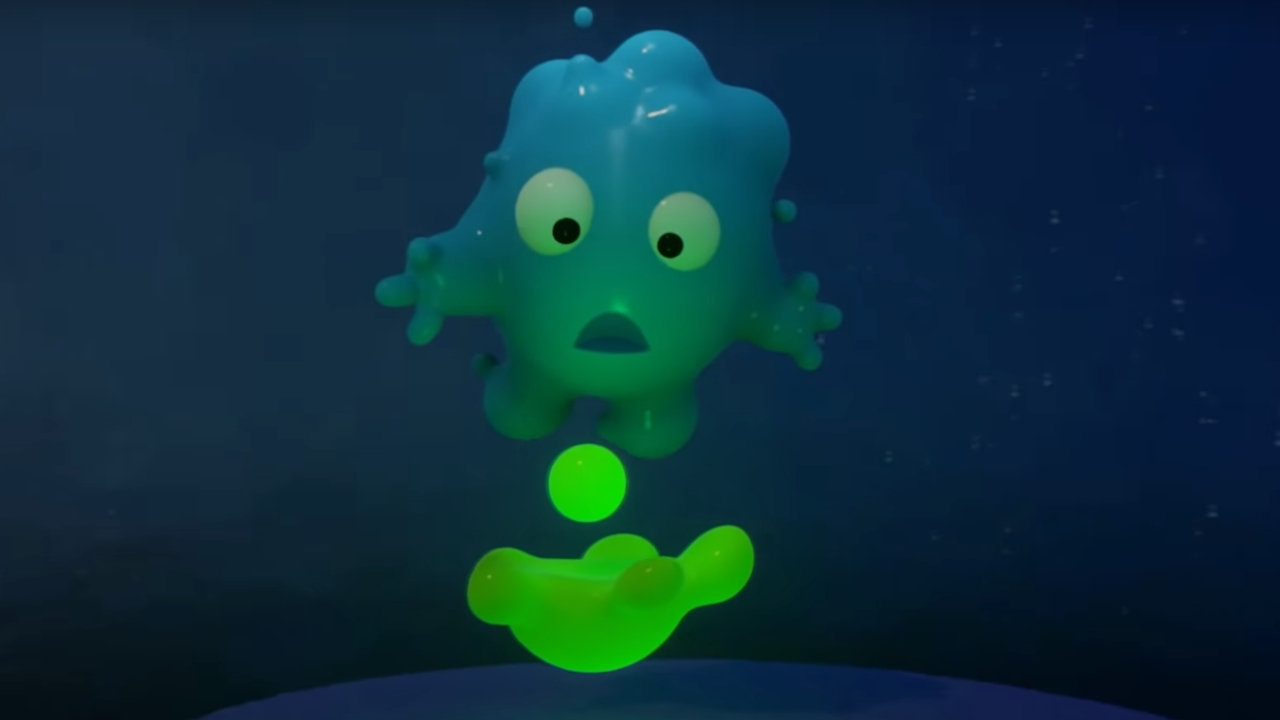
The appeal of Dreams is that you can theoretically make anything and everything imaginable. It's clear that Media Molecule's PS4 exclusive will help shape the next generation of game developers, with the accessible, absurdly deep tools it gives players to craft the creations of their, well, dreams. But inevitably, you're going to get some rapscallions who want to cause trouble by making something profane and trying to share it far and wide; for proof, look no further than the piles of penises that littered Super Smash Bros. Ultimate's Stage Builder mode in its first day. Fortunately, Dreams seems to harbor far fewer dicks, both literally and figuratively, and its community is thriving now that Dreams is out of beta and in Creator Early Access.
Over at the PlayStation offices, my tour guides through the many interconnected nodes and hallucinatory rabbit holes of Dreams are Media Molecule's communications manager Abbie Heppe and senior principal designer John Beech. Their enthusiasm and excitement when browsing through the community's bountiful creations is infectious, and even as folks who live and breathe all things Dreams, they're constantly surprised and delighted by what they'll stumble onto during some aimless browsing. After spending a few months in closed beta, Dreams soft-launched on April 19 with Dreams Creator Early Access, which you can buy into for $29.99 / £24.99. Just as everything from the beta carried over into Early Access, so too will its latest works carry over into the final release. And in the short time it's been available, Beech says that over 40,000 creations have been published within the burgeoning Dreams community.
That staggering figure is boosted by the fact that you don't have to make your Dreams world from scratch. Whenever a user publishes something to Dreams, they have the option to label it 'remixable,' essentially making it freely available for others to use in their own works of art. It could be something as simple as a realistic coffee mug, or as complex as a fully rigged puppet just waiting to become the star of someone's homebrew platformer. "There are lots of people who I've seen the genesis of on Twitter and social media, who are saying 'I suddenly decided that, instead of making everything myself from scratch, I'm just going to use [existing assets].' And it's so liberating," says Beech. Just like Legos, the blocks are all laid out before you, with more being added all the time; you're free to do whatever you like with them.
Finding the best (and/or weirdest) stuff
With so many creations pouring forth from the community each day, Dreams leans on algorithms to assist with curation. "There's a whole recommendation system that's built in behind the scenes," says Heppe. "That's actually one of the things that we're working on now, and updating as we learn about how the community creates. We're trying to make sure that it's fair to new things that people are publishing, not just what's the most popular, or what's been there since the beta so it's got the most plays... When we think about what we're trying to get out of Early Access, that's a great example of it. It's hard to know before you have thousands of people making things."
It's not all machine-learning, mind you - Media Molecule has the power to showcase staff favorites (like those featured on the regular Dreams livestreams) with Collections, which every player is free to make. These groups could be anything from individual objects to paintings to full-on games, and they're also great for creators looking for a library of desired objects. Want to add a tree, a house, or a sloth to your masterpiece? Simply look up any keyword, and you're sure to find a host of available options to use.
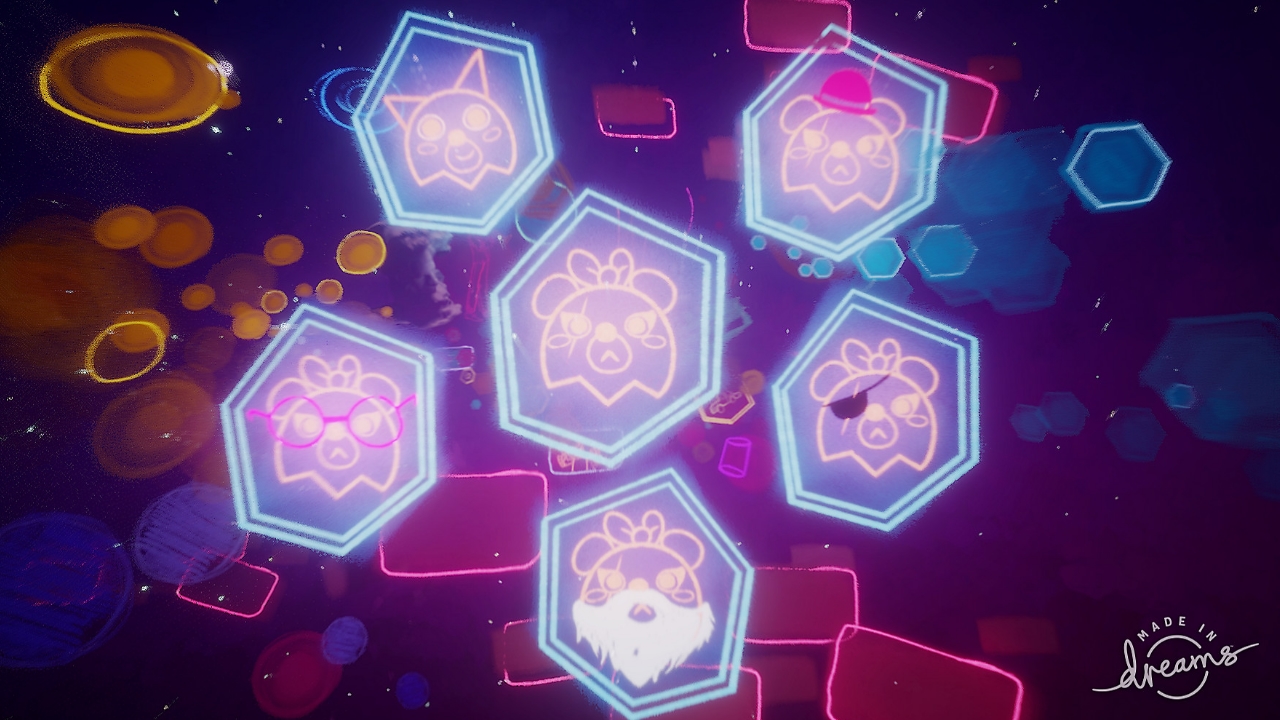
"Our hope is that people will find their own voices, and their own styles, and their own way of making things."
Abbie Heppe, communications manager
Brilliantly, Dreams has a failsafe that shuts down any content thief claiming "I made this" when plagiarizing work, called the genealogy feature. Every published object can be traced back to its original creator, and everything in Dreams offers an extensive list of credits for each and every player (represented by adorable imps) who had a hand in some part of the project. That kind of irrevocable authorship is huge in an age where far too many viral posts are pieces of stolen and uncredited content.
It's not a content free-for-all, as you're free to put restrictions on your own creations: keep them private, give chosen collaborators access (perfect for teams working on something in secret), or publish your work as playable but inaccessible for editing. Only once you've labeled something 'remixable' does it becomes part of the larger Dreamiverse, where it can be used and reused by any and all. Something you put effort, heart, and soul into might show up in an unfamiliar project, perhaps used in a way you never imagined.
Weekly digests, tales from the communities you love, and more
Filtering out the filth
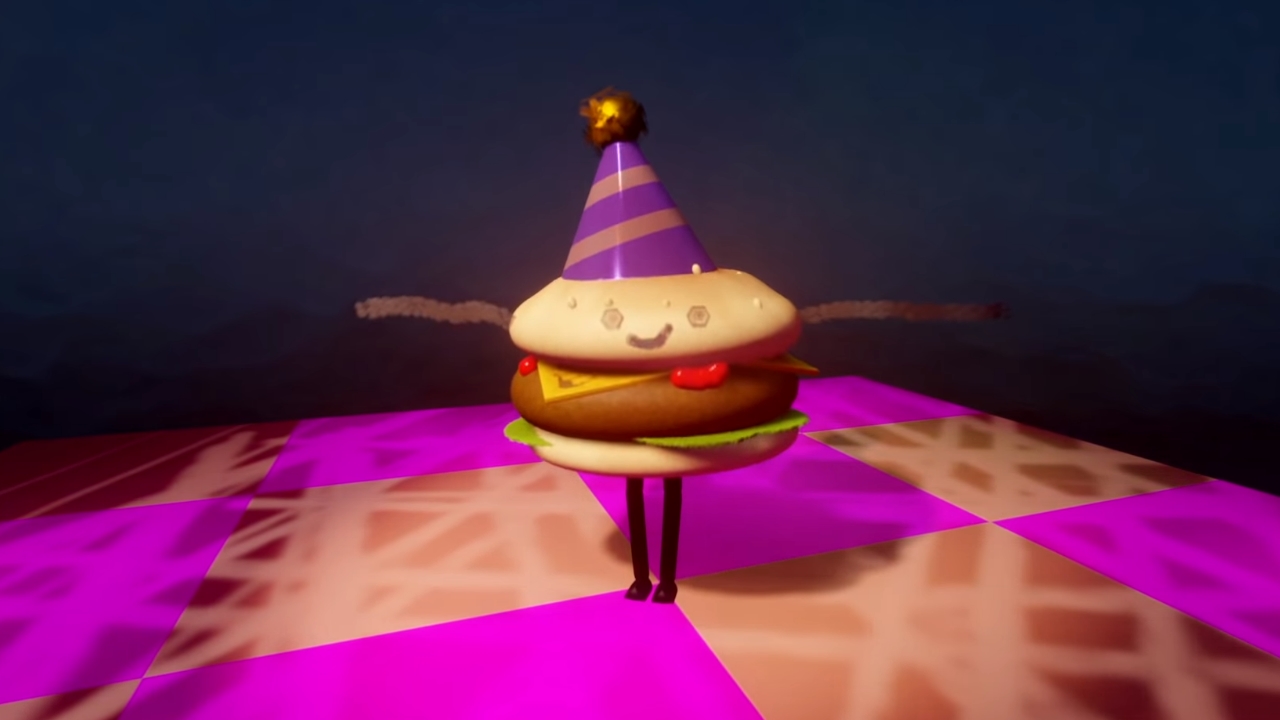
If people can make and share whatever they want, how do you prevent a flood of player-made pornography, hate symbols, or any manner of profane content from clogging up the works? "We're fully moderated - we use Sony's moderation [and safety] team," says Heppe. "There's a whole system for it in-game as well, so you can report things whether that's comments or content. Then it gets evaluated by the moderation teams. Sony has full community guidelines, and we adhere to those, so nobody's publishing pornographic materials to the Dreamiverse."
This isn't Sony and Media Molecule's first rodeo with user-generated content, after all - these teams know how to quickly eliminate unwanted offenders to keep games like LittleBigPlanet squeaky clean. "Obviously, if somebody comes to us and they're like 'My thing got moderated, and I don't know why, and I'm mad about it,' we look into that," says Heppe. "Why was it moderated? Usually we find out that there was a good reason," she laughs.
Perhaps given the nature of Creator Early Access and the notion that you're becoming a founder member of the Dreams fanbase, the community has been exceedingly welcoming and well-behaved. "What I find so far is, surprisingly, there's been very, very little [that we've had to moderate]," adds Beech. "I thought it'd be a forest of penises straight away, but there really hasn't been many - literally like one or two." And hey, if you want to sculpt some giant genitals using the creation tools purely for your own amusement, that's your prerogative. "If they don't publish it, then it's there for their enjoyment, whatever that means," says Heppe.
Finding your own voice
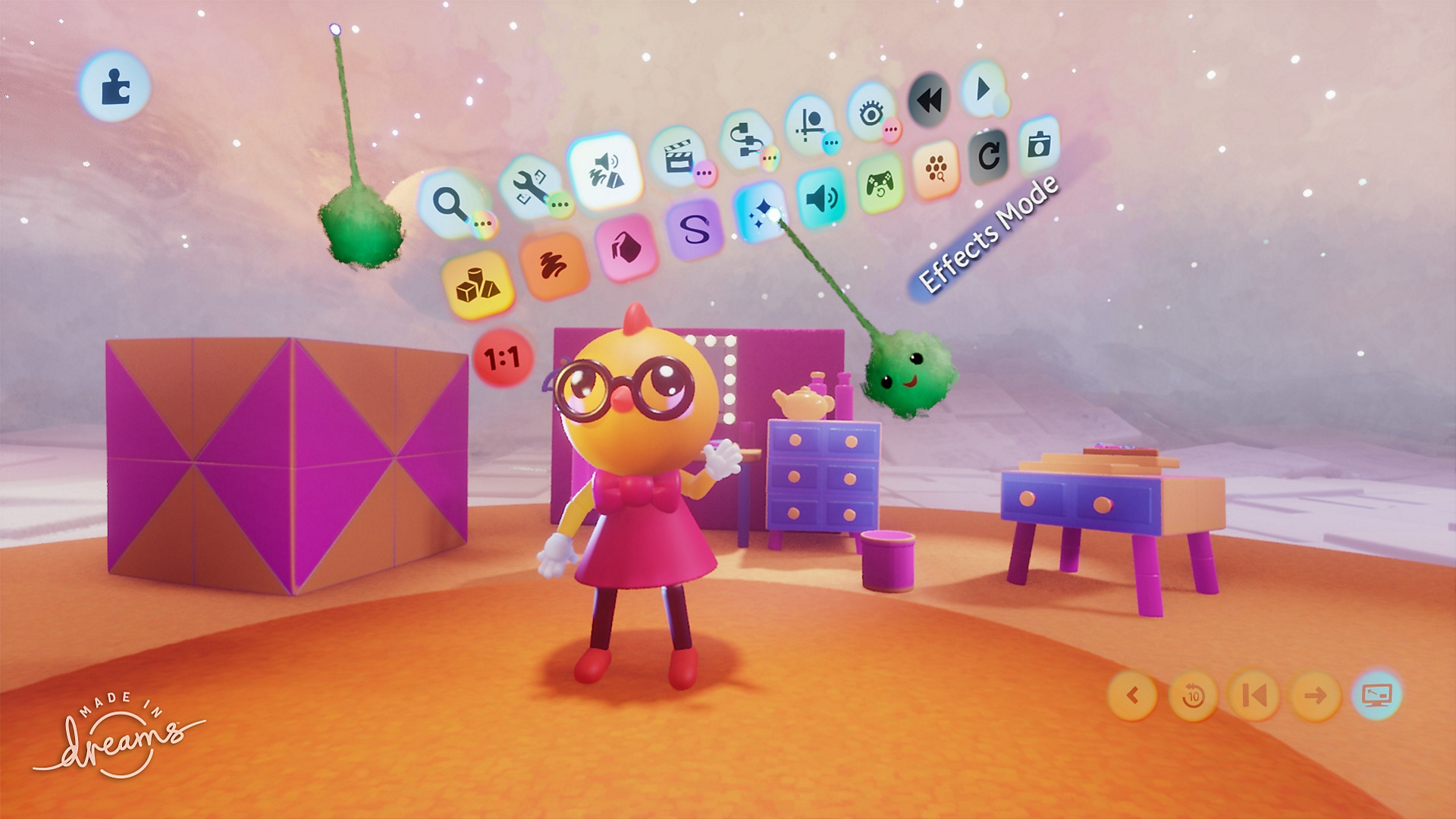
"The longest loading time is probably like five seconds for any given level."
John Beech, senior principal designer
Along with adult content, copyrighted material is another potential pitfall for Dreamers. We've seen some impressive fan creations so far, like a brief animation recreating part of the intro to Insomniac's Spider-Man - but you probably shouldn't go and make your own Mega Man game with existing pixel art entirely within Dreams, lest Capcom crush your aspirations with a swift DMCA. "We don't handle that directly; that's also handled through reporting," says Heppe. "So if somebody wants to report a copyright violation, they can do so. We have a page, there's a form; it's the same way it works for YouTube and everywhere else. Because we don't want to be the arbiters of 'What's fan content? What's copyright violation? Is this public domain?' That's a lawyer thing, not a Media Molecule thing."
"A lot of people learn to create by making the thing that they're familiar with, and our hope is that people will find their own voices, and their own styles, and their own way of making things," Heppe adds. "But it's understandable that that's the way a lot of people start, more as homage, less as direct copy." There are a few exceptions, of course - like when one user created a host of highly detailed puppets based on the Tearaway cast. "We're totally happy for people to make that kind of stuff," says Heppe. "We're not doing anything officially with our own IP in the game yet... but like, even for us, it's super exciting. People [in the office] were super happy to see that stuff. They were like 'That is so cool! They made that! That looks incredible!' Maybe we'll even do a jam or something based off of 'Hey, use the Tearaway characters in something!'"
Speaking of jams, Media Molecule is constantly hosting them in Dreams, giving creators a new prompt (like seasons) every two weeks then showcasing some of the best works. Even if you're not part of Creator Early Access, you can enjoy the community's outpouring of work using the #MadeInDreams hashtag on Twitter. Perusing it is sure to warm your heart, as fledging creators and bonafide pros proudly show off their best (or most absurd) works. It's all so incredibly wholesome, with many of these artists stunned by what they could accomplish in Dreams despite having zero prior experience with 3D modeling, programming, beat creation, or any number of other complex, intimidating mediums.
Delving into Dreams
I've always been more keen on consuming game content than creating it myself, even with the intuitive yet endlessly deep tools Dreams has to offer. But I'm eager to explore Dreams' many twists and turns using the Surf function, where you can flit from one creation to the next like a moth in Home Depot's light bulb department. The tech that Media Molecule has incorporated here is mind-boggling; Dreams file sizes are tiny, so load times are over in the blink of an eye. "The longest loading time is probably like five seconds for any given level," says Beech. As with Netflix, the ease with which you can zone out and browse endlessly could make hours feel like seconds, especially as the Dreams community continues to grow and expand its horizons even further. Pick a genre of tags to surf (like sci-fi) or just jump in without a direction, and you're off.
There's no telling where you'll end up on your surfing expeditions through Dreams. Heppe and Beech show me a wide range of amazing creations - some mere visual gags that ended in seconds, others fully-formed experiences that seem like they could stretch on forever. There's a twin-stick shooter starring fan-favorite PlayStation exec Shuhei Yoshida, pomeranians made from smaller pomeranians, a zombie aerobics video featuring dancing undead in neon unitards. My favorite so far is Haus of Bevis, a first-person fever dream/nightmare featuring Myst-like vistas and a museum full of bizarre sculptures spouting lines from a viral video I'd not seen before (recorded using the PlayStation Camera's microphone).
Dreams' first patch in Creator Early Access makes its debut this month, and the team at Media Molecule is still hard at work, even with its comprehensive tools now in players' hands. "People are working on Dreamiverse systems, people are working on content," says Heppe. "Making tutorials, making templates, making things to help users that are newer to creation." Bug fixes are also on the way (I have to imagine that bug-testing an open-ended creative tool like Dreams is a Sisyphean feat), and there's even an increase to the purely cosmetic level cap that reflects how much time you've spent creating, which some prolific Early Access players have already managed to hit. And this is just the beginning for Dreams and its seemingly infinite potential. "We really don't want to be in Early Access for a super long time, we just want to make sure everybody has what they need to get going," says Heppe. "We can't wait to get it out to everybody and see what they do."
For more amazing first-party games, peruse our list of the best PS4 games. Or see what's happening this week in games and entertainment with our latest Release Radar:
Lucas Sullivan is the former US Managing Editor of GamesRadar+. Lucas spent seven years working for GR, starting as an Associate Editor in 2012 before climbing the ranks. He left us in 2019 to pursue a career path on the other side of the fence, joining 2K Games as a Global Content Manager. Lucas doesn't get to write about games like Borderlands and Mafia anymore, but he does get to help make and market them.
